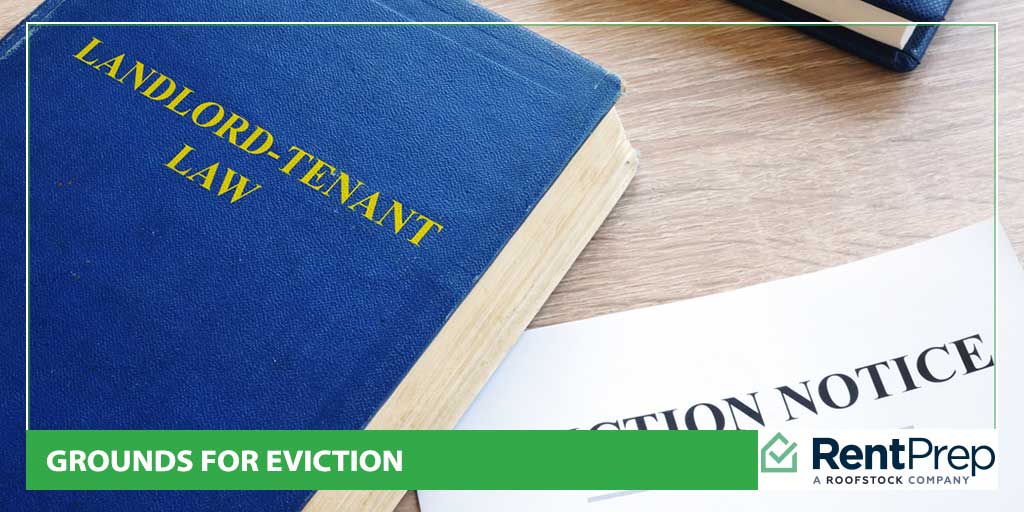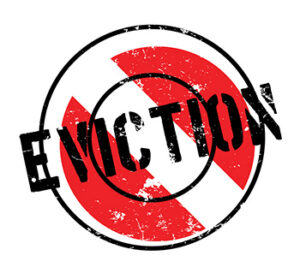
If you are a landlord and have the strong desire to evict a tenant, make sure your reasons are legally valid.
The laws are set up to ensure that landlords cannot simply evict tenants for just any reason, they need to have grounds for eviction.
Even if the tenant is the messiest person you’ve ever seen or the tenant’s personality doesn’t click with yours, those are not legal reasons to evict. It’s important to become familiar with the legal reasons landlords can evict tenants so that when the time comes you know that the law will be on your side.
There are several valid legal reasons to evict a tenant that are generally upheld in every state.
Here are the top 5 legal reasons to evict a tenant:
1. Late Rent
Probably the most common legal reason to evict is late rent, or when the tenant fails to pay the rent by the due date specified in the rental agreement. While it is up to you whether to work with the tenant on making payment arrangements or deliver a pay or quit notice, you are entirely within your legal rights on both.
If you are going to deliver a pay or quit notice, always make sure that the wording of the notice complies with your state laws on the grace period that the tenant has to pay the rent and stop the eviction process. For example, in Alabama and Texas, the tenant has seven days from the delivery of the notice to pay rent or the eviction process will move to the next level. In Nevada and Arizona, it’s five days, while in states like North Carolina, tenants have 10 days to pay rent. Whatever your state’s laws outline, make sure it is reflected in your pay or quit notice.
2. Lease Agreement Violation

Another legal reason to start the eviction process against a tenant is that you’ve discovered that he or she has violated the lease agreement. One example of this might be that the tenant is allowing someone to live there who is not on the lease agreement, such as a relative or love interest. Another example is that your lease agreement specifically outlines the parking rules for each unit and your tenant or their guests are constantly parking in stalls that are not assigned to the unit. Yet another reason could be that the tenant constantly disturbs others with loud music or other activities.
When a tenant violates the lease agreement, you are within your legal rights to issue the appropriate comply or quit notice. This notice gives tenants a chance to make changes to their behavior. Depending on the violation, you will have to determine whether the tenant made an innocent mistake or has willfully ignored the lease agreement. A warning note, issued for the first violation, is a common practice among many landlords, with the idea that if the violation happens again, the comply or quit notice will be delivered.
3. Illegal Use
While many people equate this legal reason to evict with shady drug deals or gambling rings, illegal use can simply mean that the rental property is being used for another purpose than what it is zoned for. A good example of this is if a tenant decides to open up a business in the rental unit, like a nail salon, daycare or financial consulting office. If you discover the tenant is running a business from the unit, the tenant is violating the lease agreement and using the property illegally. There are also issues with state requirements, such as health and safety codes, liability for customers and so forth. While drug deals and other illegal activity are certainly grounds for eviction, illegal use is a much bigger umbrella for tenant activities.
4. No Longer Renting

If you are the owner of the rental unit and you decide to take it off the market and no longer rent, that is a legal reason to evict a tenant. An example of this is if you decide to move into the property yourself, you are going to let an immediate family member move in or you are going to sell it. Each state has strict laws about how landlords must go about notifying their intent to withdraw the property, and proper notice to tenants is a must. Before you start this process, make sure you become very familiar with your state’s intent to withdraw process as there are some very strict rules you must adhere to.
5. Rehabilitation, Demolition or Sale
Sometimes a property owner or landlord wants to make plans to substantially rehabilitate the rental property. This could be for anything from update old plumbing and electric systems to selling the property to demolition. In each case, a landlord must follow certain requirements and steps in notifying tenants properly and also show why the rental unit will not be habitable. Whether rehabilitation, demolition or sale of the property, it’s critical for landlords to follow the right steps for all concerning the drastic changes on the horizon. If tenants refuse to comply and leave at the appropriate time, the law backs the landlord in the eviction process.
While there are plenty of reasons you might like the tenant out of your rental property, unless the reasons have legal backing, you will just have to learn to live with it until you can take back possession of your property the right way. Landlords who try to pressure their tenants into leaving can also get into legal trouble, so make sure your conduct is always above reproach when dealing with tenants.
In a worst case scenario with a tenant you just don’t care for, you can choose not to renew the lease agreement when it expires. Until then, unless the tenant does something that you can legally evict for, there isn’t much you can do but wait.

